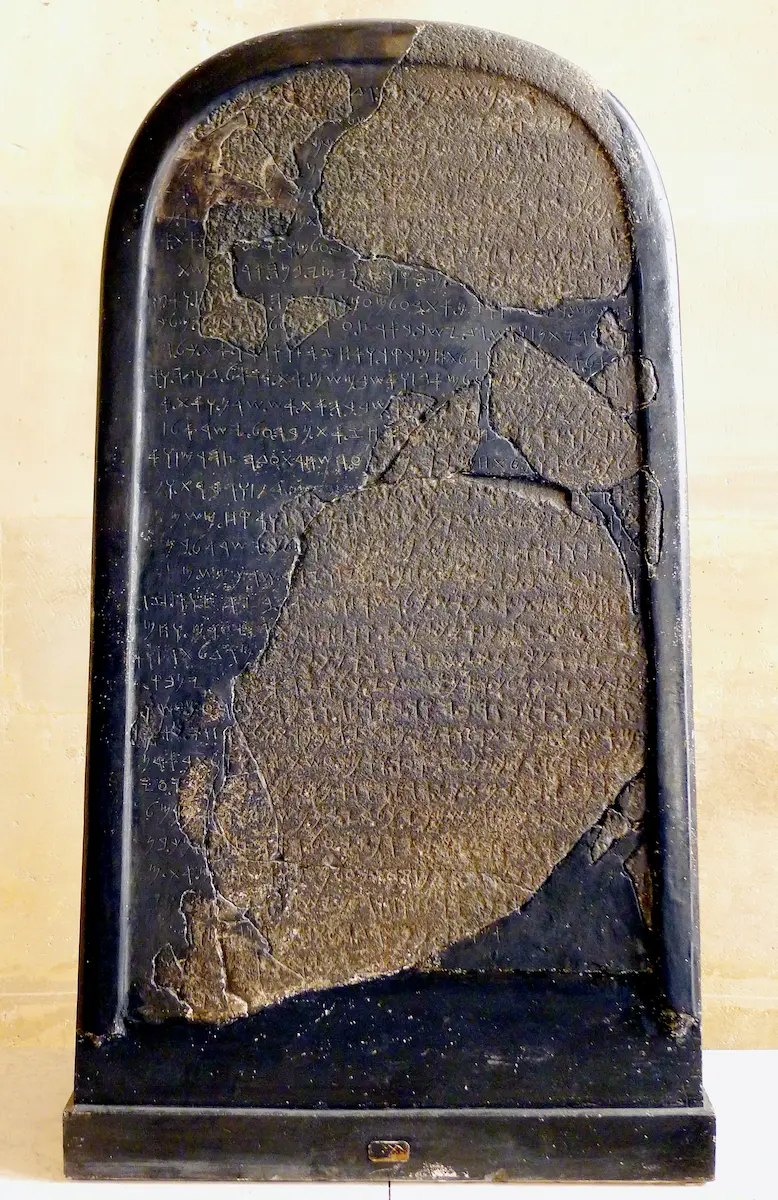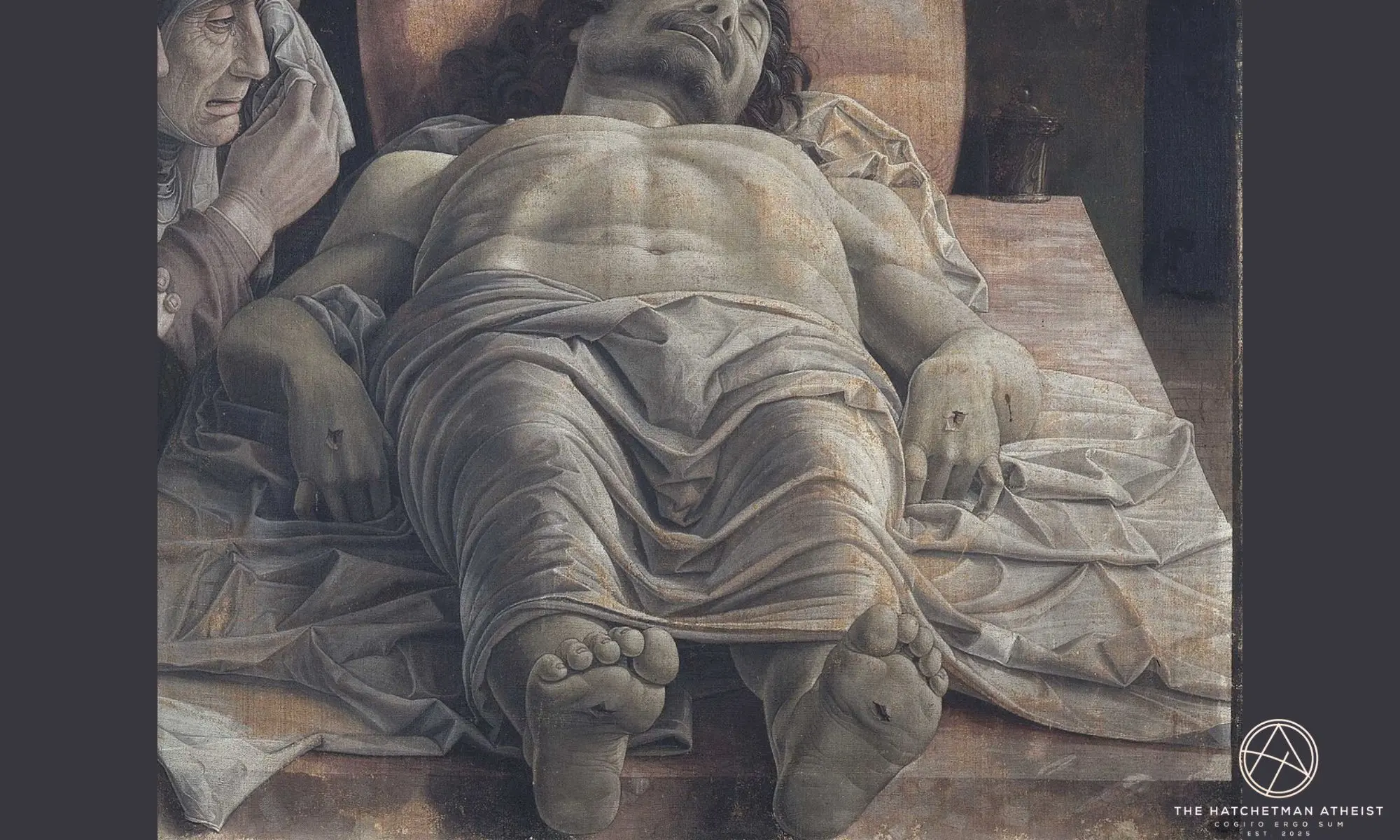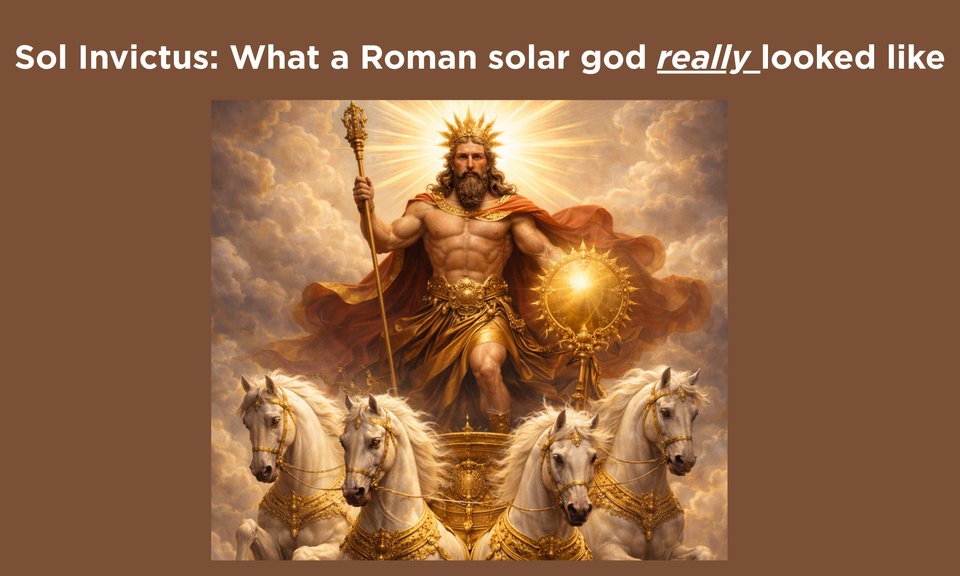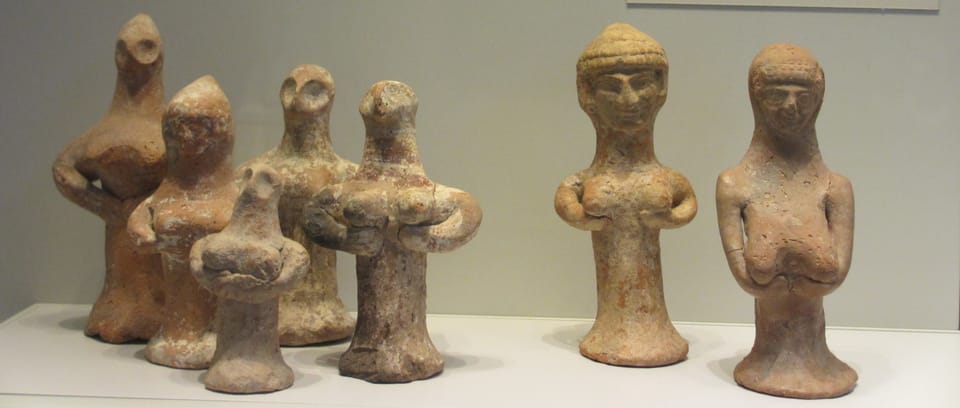That Time When Chemosh Beat Yahweh (Bad)
In 2 Kings 3, Yahweh seems poised for victory—until the Moabite king sacrifices his son, and Israel retreats. Did Chemosh just win a battle against the God of Israel?

TL;DR:
In 2 Kings 3, Israel is crushing Moab—until the Moabite king sacrifices his son to Chemosh, and suddenly “great wrath” drives Israel to retreat. Scholars say this may be one of the Bible’s boldest moments: Chemosh, a rival god, seemingly beats Yahweh on home turf. The story challenges later monotheistic theology and offers a rare glimpse into a time when divine territory was a serious issue—and gods didn’t always win every round.
"Then he took his firstborn son who was to succeed him as king and offered him as a burnt offering on the wall. And great wrath came upon Israel, so they withdrew from him and returned to their own land." — 2 Kings 3:27 (NRSVue)
Here’s one for the “Wait, the Bible says what?” file. Just when Israel thinks it has a divine slam dunk—prophet-approved and Yahweh-backed—everything goes sideways. The Moabites are getting stomped, victory seems inevitable... until the Moabite king sacrifices his son. And boom—Israel turns tail and heads home.
Previously on Ancient Theological Showdowns...
Let’s rewind. Moab had been paying tribute to Israel for years—think sheep and wool, not gold bars—and when King Ahab died, Moab figured, “Now’s our chance.” Their king, Mesha, refused to pay. Israel, being the ancient equivalent of a loan shark with a divine warrant, decided to bring the heat, teaming up with Judah and Edom to put Moab back in its place.
Elisha, hearing from Yahweh, gave the green light. The plan was full steam ahead:
"You shall conquer every fortified city and every choice city; every good tree you shall fell, all springs of water you shall stop up, and every good piece of land you shall ruin with stones.” — 2 Kings 3:18–19 (NRSVue)
So far, so good. The coalition sweeps through Moabite territory. Cities fall. Crops get torched. The kind of scorched-earth diplomacy that would make even a bronze-age warlord raise an eyebrow. It’s all very Old Testament.
But then... plot twist. With everything crumbling around him, in what must have been a last act of desperation, King Mesha does something drastic—he sacrifices his own son on the wall of the city. Publicly. Dramatically. And whatever it was meant to do, it worked. The text says, “great wrath came upon Israel,” and the next thing you know, they’re packing their tents and heading home.
So... Did Chemosh Just Pull Off a Win?
Some scholars think this wasn’t just a strategic retreat. They argue that the text is implying something much bigger: that Chemosh, Moab’s god, responded to the sacrifice and drove Israel out.
What the Experts Say
Chemosh Throws a Divine Tantrum
John Gray (1970) suggests that the “great wrath” wasn’t just human fear. It was Chemosh stepping in:
“The withdrawal of the Israelite forces cannot be explained by human fear alone. The text reflects the ancient belief that Chemosh had unleashed his divine fury to protect Moab.” (I and II Kings, p. 519)
A Battle of the Gods
Walter Brueggemann (2000) sees this moment as an ancient theological gut-punch. Yahweh had promised a win, but Chemosh had home field advantage:
“The narrative insists on the potency of Chemosh as a legitimate rival to Yahweh, challenging Israel’s monotheistic claims in a way that would have unsettled ancient audiences.” (First and Second Kings, p. 400)
Moab Gets the Last Word
Richard Nelson (1987) ties this biblical story to the Mesha Stele—a Moabite monument where King Mesha proudly credits Chemosh for kicking Israel out:
“The Bible here indirectly acknowledges what the Mesha Stele celebrates: Chemosh’s dominance in Moabite territory, where even Yahweh’s people could not prevail.” (First and Second Kings, p. 213)
So What Just Happened?
This whole episode feels like a throwback to an earlier religious worldview—where gods had territories like landlords, and invading another god’s turf came with spiritual risk. Yahweh ruled in Israel. Chemosh ruled in Moab. And apparently, Chemosh defended his home turf pretty effectively.
Elisha promised victory. Israel was winning. But Mesha's desperate move worked. The sacrifice may have shocked the Israelites, or maybe they believed Chemosh actually did something. Either way, they left.
Why It Matters
This is one of those rare Bible moments where Yahweh doesn’t come out on top. And it doesn’t seem to offer a neat theological excuse. No “Israel sinned,” no “God was testing them.” Just a quiet, unsettling ending: the other god wins.
If nothing else, it gives us a glimpse into how messy, overlapping, and competitive ancient theology could be. It wasn’t always clear who was in charge—and sometimes, Chemosh got the last word.
Works Cited
- Brueggemann, Walter. First and Second Kings. Westminster John Knox Press, 2000.
- Gray, John. I and II Kings: A Commentary. SCM Press, 1970.
- Nelson, Richard D. First and Second Kings. Westminster John Knox Press, 1987.




